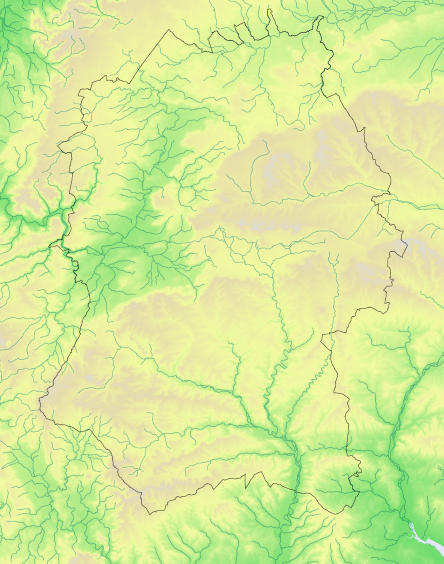Atlas species lists
- Breeding distribution 1995–2000
- Summer abundance 1995–2000
- Winter distribution 1995–2000
- Winter abundance 1995–2000
- Breeding distribution 2007–2012
- Summer abundance 2007–2012
- Winter distribution 2007–2012
- Winter abundance 2007–2012
- Breeding distribution change
- Summer abundance change
- Winter distribution change
- Winter abundance change
More Pochard maps
- Breeding distribution 1995–2000
- Summer abundance 1995–2000
- Winter distribution 1995–2000
- Winter abundance 1995–2000
- Breeding distribution 2007–2012
- Summer abundance 2007–2012
- Winter distribution 2007–2012
- Winter abundance 2007–2012
- Breeding distribution change
- Summer abundance change
- Winter distribution change
- Winter abundance change
More maps for this atlas
Map explanation
This map shows the winter distribution of the species in Wiltshire as revealed by the fieldwork for Birds of Wiltshire (Wiltshire Ornithological Society 2007).
Key
Status
Nos tetrads

Present
13
3%

Not surveyed
Common Pochards breed widely from western Europe to north-east China. First recorded breeding in Great Britain in the early 1800s, becoming widely but thinly spread by the 1930s, mostly in the north and east. The British breeding population totals no more than a few hundred pairs.
First confirmed records of breeding in Wiltshire were at Clarendon Lake in 1962 and again in 1965. There were then no more records until 1978 when a brood of six was reported at Corsham Lake. Breeding was then recorded in every year until 1994, with up to six broods a year spread around Corsham, Fonthill, Clarendon and Langford Lakes. Between 1995 and 2012 however breeding was recorded in only four years, at Wardour Lake in 1997, at Langford Lakes in 2002 and 2004 and at the Cotswold Water Park(CWP) in 2012. The latter was, surprisingly, the first ever confirmed breeding record from the CWP despite the fact that small numbers have summered there in most recent years.
The summer distribution maps show little change between Birds of Wiltshire (recorded in 21 tetrads, with breeding confirmed in one) and Bird Atlas 2007-2011 (recorded in 17 tetrads with no confirmed breeding records but pairs present in four tetrads). The winter distribution maps on the other hand show a marked increase, from six core 10km squares in Birds of Wiltshire to 17 core squares in Bird Atlas 2007-2011, bucking a national trend which saw a 21% contraction in winter range between the 1981-84 Winter Atlas and Bird Atlas 2007-2011.
References
The following references are used throughout these species accounts, in the abbreviated form given in quotation marks:
“1968-72 Breeding Atlas” – Sharrack, J.T.R. 1976: The Atlas of Breeding Birds in Britain and Ireland. T. & A. Poyser
“1981-84 Winter Atlas” – Lack, P.C. 1986: The Atlas of Wintering Birds in Britain and Ireland. T. & A. Poyser
“1988-91 Breeding Atlas” – Gibbons, D.W., Reid, J.B. & Chapman, R.A. 1993: The New Atlas of Breeding Birds in Britain and Ireland 1988-91. T. & A. Poyser
“Birds of Wiltshire” – Ferguson-Lees, I.J. et al. 2007 : Birds of Wiltshire, published by the tetrad atlas group of the Wiltshire Ornithological Society after mapping fieldwork 1995-2000. Wiltshire Ornithological Society.
“Bird Atlas 2007-2011” – Balmer, D.E., Gillings, S., Caffrey, B.J., Swann, R.L., Downie, I.S. and Fuller, R.J. 2013: Bird Atlas 2007-2011: the Breeding and Wintering Birds of Britain and Ireland
“WTA2” – ("Wiltshire Tetrad Atlas 2 ") the present electronic publication, bringing together the Wiltshire data from “Birds of Wiltshire” and “Bird Atlas 2007-11”, together with data from further fieldwork carried out in 2011 and 2012.
"Hobby" - the annual bird report of the Wiltshire Ornithological Society.

